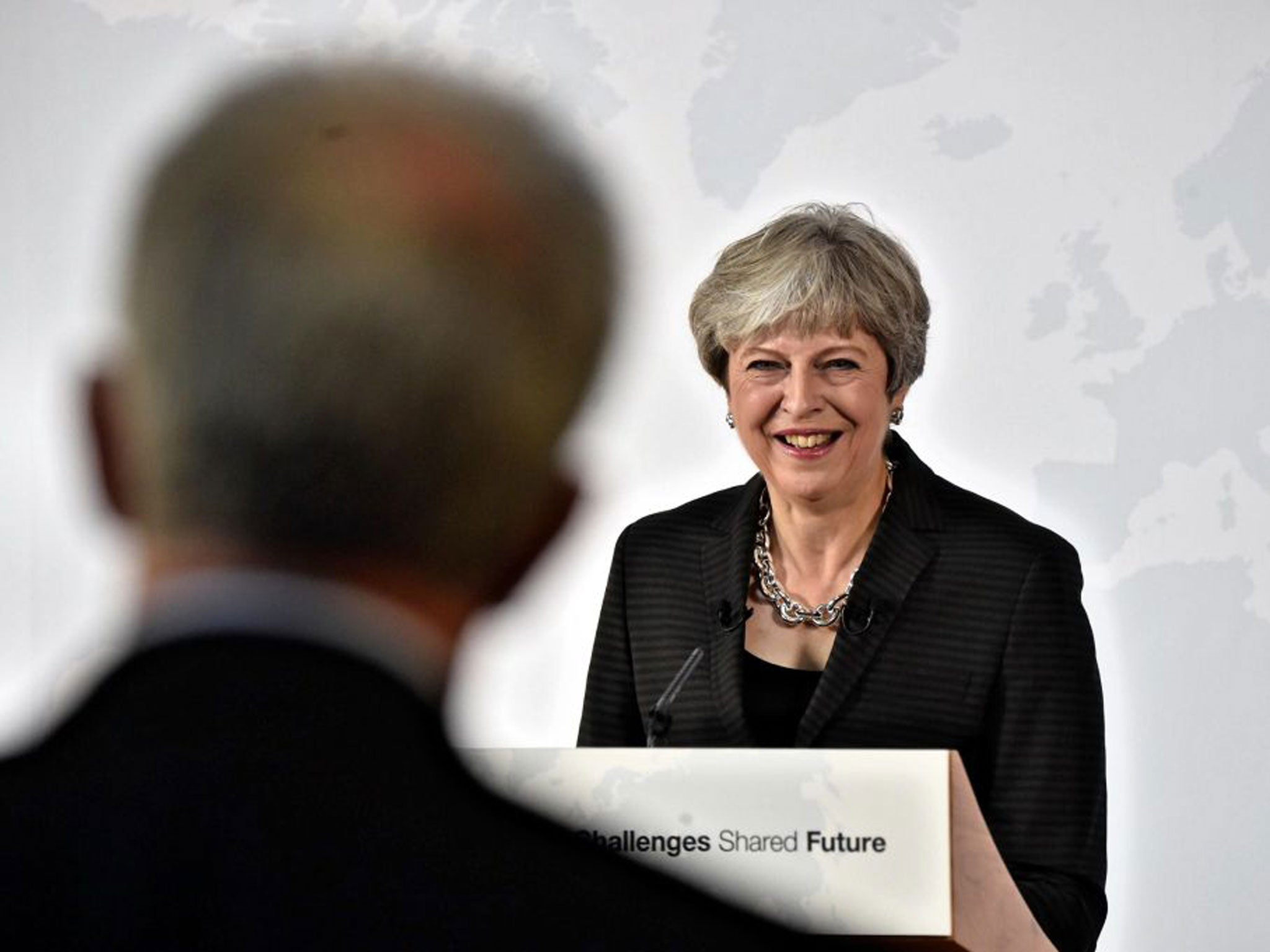Postponing the Brexit cliff edge for two years is better than rushing over it
The Prime Minister's plan to stay in the single market until 2021 makes it more likely that damage to the British economy can be minimised or avoided

Your support helps us to tell the story
From reproductive rights to climate change to Big Tech, The Independent is on the ground when the story is developing. Whether it's investigating the financials of Elon Musk's pro-Trump PAC or producing our latest documentary, 'The A Word', which shines a light on the American women fighting for reproductive rights, we know how important it is to parse out the facts from the messaging.
At such a critical moment in US history, we need reporters on the ground. Your donation allows us to keep sending journalists to speak to both sides of the story.
The Independent is trusted by Americans across the entire political spectrum. And unlike many other quality news outlets, we choose not to lock Americans out of our reporting and analysis with paywalls. We believe quality journalism should be available to everyone, paid for by those who can afford it.
Your support makes all the difference.Eurosceptic Conservative backbench MPs are unhappy with the Prime Minister’s speech in Florence setting out her plan for Britain’s departure from the European Union, as we report today. However, it is significant that they are merely grumbling, not revolting, and that the Cabinet, including the noisily doubtful Foreign Secretary, are united.
Indeed, now that the surprise at the thinness of Theresa May’s speech has worn off, it is possible to see what a remarkable trick she has pulled off. She has succeeded in uniting everyone from the Brexit wing of the Conservative Party to the leadership of the Labour Party.
Not only is Boris Johnson satisfied with a two-year transition period in which we will have left the EU but try to keep everything as much the same as possible, but Keir Starmer, the Shadow Brexit Secretary, claimed it was all his idea: “The Prime Minister didn’t need to go to Florence to accept that Labour is right about Brexit transitional arrangements.”
Naturally, such an implausible alliance can be maintained only by ambiguity. Mr Johnson and his colleagues are satisfied that we are heading for a relationship with the EU in 2021 in which we control immigration, get away from the European Court of Justice and pay nothing for the single market.
Many in the Labour Party, on the other hand, would be pleased if Britain can retain single market membership, including the free movement of people, for another two years. The Independent shares their grudging acceptance that it could be worse. Ms May might have gone for a cliff-edge exit on 29 March 2019, which would have been bad for the British economy and for which, as she admitted in Florence, we would not be ready.
Postponing the cliff edge for two years may not mean that the damage to the economy is much less, although any more time to prepare is welcome, but the longer it takes to arrive at the cliff edge, the more likely it is that evasive action can be taken.
We have to accept, reluctantly, that Britain probably will leave the EU in 18 months’ time. The sort of shift in public opinion over the next 12 months that would be needed to avert it is unlikely to happen. But after we have left, and while we are still enjoying what Ms May admitted in Florence are the “benefits” of single market membership, it may be possible to construct a new form of associate membership of the EU.
Once we are out it might be more possible to construct a relationship that would satisfy not just the 52 per cent who voted to leave but also the 48 per cent who voted to remain – and the peoples of the other 27 nations.
In The Independent’s view, ending our membership of the single market is against the nation’s economic interest. There is never a good time to do that, but the longer we can put off the day, the more chance there is that good sense, or a compromise, or just events, will intervene.
Join our commenting forum
Join thought-provoking conversations, follow other Independent readers and see their replies
Comments